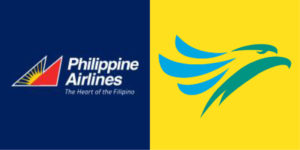 Local carriers Cebu Pacific and Philippine Airlines (PAL) have adjusted their flights into China, Hong Kong, and Macau in response to the outbreak of the novel coronavirus (2019-nCoV), cases of which were first detected in Wuhan, China.
Local carriers Cebu Pacific and Philippine Airlines (PAL) have adjusted their flights into China, Hong Kong, and Macau in response to the outbreak of the novel coronavirus (2019-nCoV), cases of which were first detected in Wuhan, China.
Cebu Pacific, in an advisory on January 30, said it will reduce flights between the Philippines, mainland China, Hong Kong and Macau from February 5 to March 29, 2020.
Passengers affected by flight cancellations of the carrier have been notified and offered options including rebooking, refunding, and storing of the value of the ticket in a travel fund for future use.
PAL has also adjusted its mainland China operations, according to an advisory on January 30. Charter flights between Kalibo and parts of China (Nanjing/Hangzhou/Pudong Shanghai) have been suspended, as the Chinese authorities have implemented precautionary measures to restrict outbound tourist travel from mainland China.
Scheduled flights between Manila and Beijing, Pudong Shanghai, Guangzhou, Jinjiang, Xiamen, Hong Kong and Macau, however, are still maintained. Advisories will be issued if there are any changes based on PAL’s daily assessment of the situation and the slowdown in travel from China.
Both airlines said they are also working closely with the Department of Health (DOH) and Bureau of Quarantine (BOQ) on the necessary actions after the identification of the 38-year old Chinese female passenger confirmed to be positive with 2019-NCoV who took their flights last January 21 and 25, 2020.
Both airlines are contacting passengers seated in the vicinity of the positive nCoV patient and are taking the necessary precautions to inform them so they can have themselves checked in case they show flu-like symptoms.
Cebu Pacific’s cabin crew and pilots on affected flights have also been informed and show no symptoms of illness, while PAL’s flight crew were placed on quarantine.
Meanwhile, the aircraft used for Cebu Pacific’s flights have been pulled-out of the line and are undergoing thorough disinfection.
Meanwhile, the aircraft used for both flights have been pulled-out of the line and are undergoing thorough disinfection.
PAL assured the flying public that “robust preventive measures are in place to protect our passengers,” including cabin spraying after passenger disembarkation and more intensive disinfection of aircraft; thermal scanning of all arriving passengers by BOQ, coupled with screening measures at key departure airports; wearing of face masks by cabin crew; and provision of face masks to passengers, on request.
PAL also continues to conduct an information campaign at the airport and on board its flights to promote sensible safety practices for travellers; and to implement a coordinated system of reporting of any medical concerns, in collaboration with concerned health authorities and BOQ.
The Civil Aviation Board (CAB) on January 23 suspended immediately and indefinitely all air services operations between Wuhan and any point in the Philippines. Kalibo in Aklan is the only point in the Philippines that directly connects to Wuhan by way of chartered flights.
READ: DOTr tightens safety protocols at all transport hubs
All air carriers, regardless of route serviced and as long as the origin or destination is in China, are also required to closely monitor the events that might transpire in other Chinese cities as well as other countries, and to take all precautions to ensure the protection of health and safety of passengers.
CAB likewise directed all air carriers to immediately secure from BOQ copies of the Health Declaration Checklist and ensure that all passengers and air crew answer it before disembarking.
CAB stressed the importance of the checklist in assisting BOQ in later tracking down passengers shown to be infected by or to have been exposed to 2019-nCoV.
All area centers and airports, especially those with international flights, have been ordered to immediately review and update their respective airport emergency plans to address public health threats such as 2019-nCoV in coordination with the local quarantine health office.
The Civil Aviation Authority of the Philippines (CAAP) has also reactivated its communicable disease preparedness procedures at all CAAP-operated airports, especially in international gateways such as Puerto Princesa, General Santos, Zamboanga, Davao, Kalibo, Laoag, and Iloilo in a bid to contain the spread into the country of 2019-nCoV.
Airport frontline personnel have been advised to observe precautionary measures such as maintaining proper hygiene and regular hand washing, and to exercise extreme vigilance in handling passenger arrivals and strictly monitoring those who are possibly infected by the virus.
Posting of public advisories informing about coronavirus infections is also being enforced.
For operations at the country’s main air gateway, Ninoy Aquino International Airport, Manila International Airport Authority general manager Ed Monreal said they are in full coordination with BOQ in supporting safety protocols.
A dedicated lane with writing desks at the arrival concourse of the airport has also been set up for quarantine thermal screening of arriving passengers.
The World Health Organization has declared the 2019-nCoV outbreak a public health emergency of international concern. Also known as the Wuhan coronavirus, 2019-nCoV is a contagious virus that causes respiratory infection and has been shown capable of human-to-human transmission.
More than 200 deaths due to the virus have been recorded globally so far even as the microbe continues to infect thousands. In the Philippines, one positive case has been declared on January 30 while several others in different areas are being monitored.





